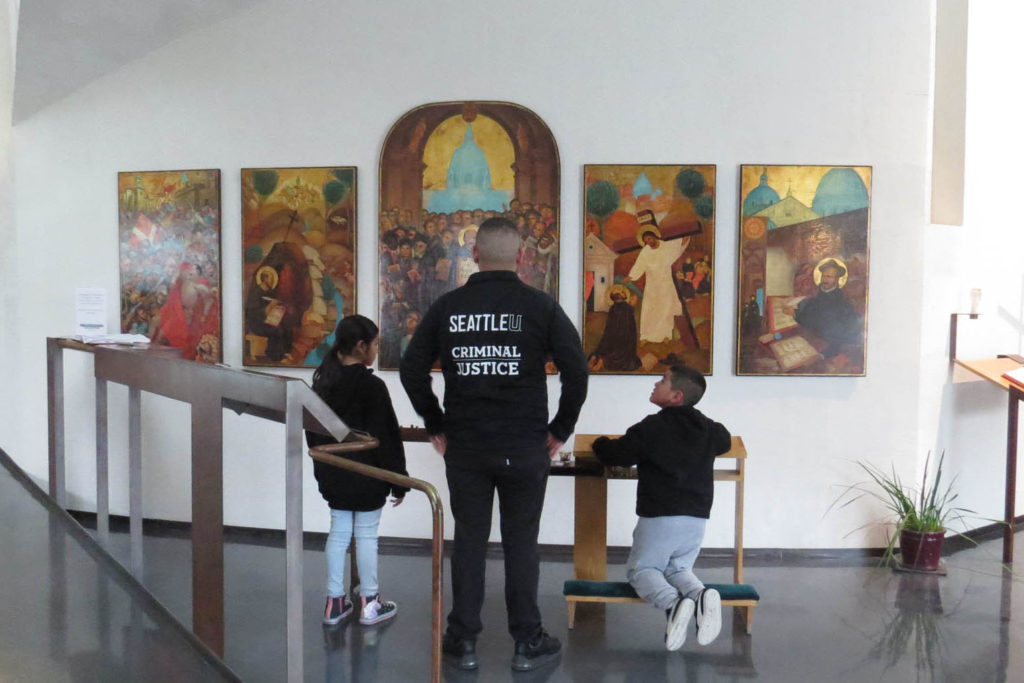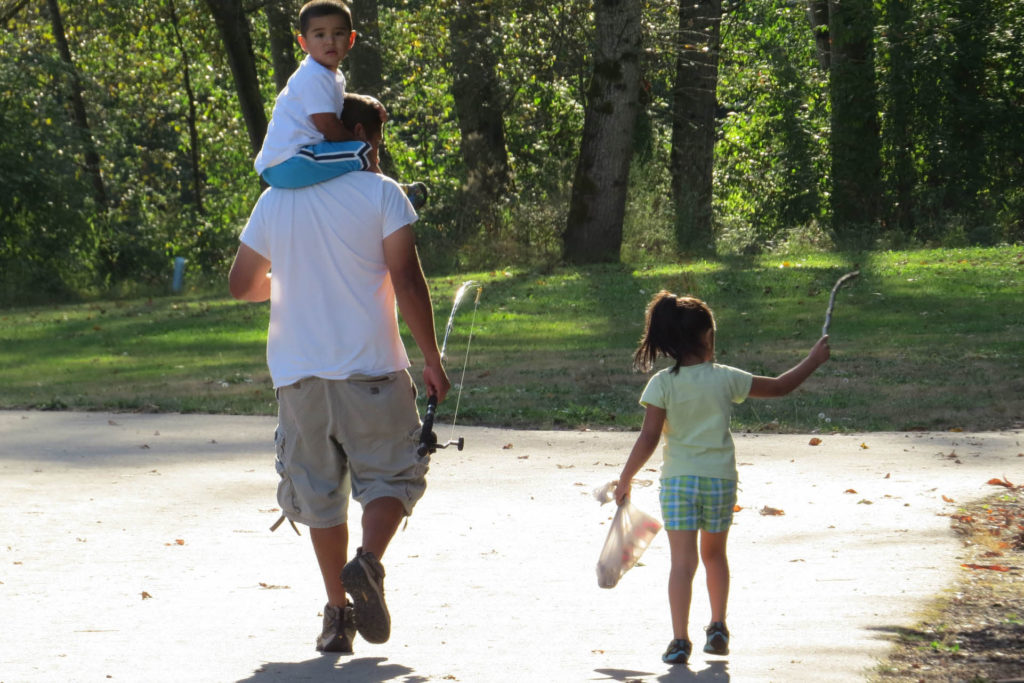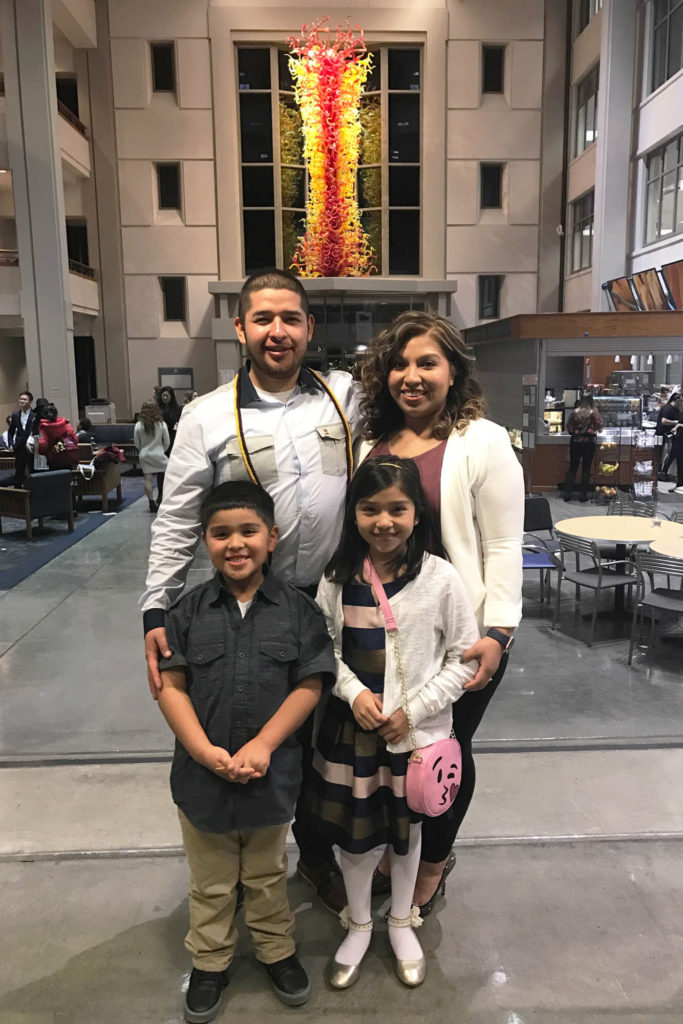“I’ve been in line [to get my citizenship] since I was seven. I was raised here, I was enculturated here, and I’m not asking for any free handouts now,” David Morales-Rosales said as he discussed the current state of the Deferred Action for Childhood Arrivals program. “If the opportunity came and they said, ‘hey, tomorrow you can be a police officer or you can be a marine,’ I would go into the marine corps tomorrow and I would repay America for everything it has given me and my family.”
Morales-Rosales is a senior criminal justice major at Seattle U who will be graduating this quarter at the age of 27. He has spent the past 10 years working toward a bachelor’s degree, balancing his time between studying and supporting his family financially and being there for his children.

“We did not use our faces, because the conversation we were having was far more important than the picture we were taking.”
Any conversation with Morales- Rosales immediately reveals his optimistic outlook on life. He is unwaveringly positive, and in addition to being a full-time student and father of two, he is faced with uncertainty as he wonders what will happen to DACA, the program that makes him eligible to work in the United States.
In late 2017 the Trump Administration elected to end the DACA program. Since this decision, immigration has been at the forefront of many political debates, remaining front and center during the government shutdown in January.
DACA does not provide legal citizenship, but provides two-year permits and work authorization to those who qualify. Congress has yet to reach a solution on funding for a replacement program. Temporary funding was passed only through Feb. 8, leaving Congress little time to reach a compromise.
It remains unclear what the future holds for DACA recipients and undocumented people alike, as each day they face the threat of losing DACA and possibly being deported. However, Morales-Rosales is not one to follow the barriers or restrictions that others set for him.
“When I realized those limitations weren’t for me, is when I started excelling,” he said.
This realization marked the beginning of Morales-Rosales’ triumphs as he soon received his General Equivalency Diploma (GED), continued on to get his Associates Degree and is now finishing his undergraduate education at Seattle U.
One of the main reasons Morales-Rosales is so excited to graduate is that he’ll now get to spend more time with his family and continue watch his children learn and grow.
“To me, that’s what being an American is. at’s America to me. They’re my America, my family is my America, my friends are my America.”
For Morales-Rosales, losing DACA status would mean much more than losing a piece of paper that provides various authorizations.
“Ultimately, the deportation part, it sounds like it’s bad, but it’s worse because that’s what it would mean to me,” he said. “No more reading to my kids, no more being there for whatever help they need.”
With so much at stake, Morales- Rosales has spent a great deal of time reflecting on what it means to carry the identity of “DACA recipient” or “undocumented” person. There is a need for these linguistic legal labels, but this language often misrepresents the experiences of the undocumented communities.
“The word undocumented lives in the same realm of half-truth and myth,” he said. “Who’s to say that [undocumented workers] are not documented in everything they do?”
He emphasizes that “undocumented” individuals are in fact documented through the very mark they leave on society, and that they are no less capable of achieving their goals or pursuing their dreams than any other person. O en, the language used to discuss undocumented folks can be limiting to those the labels try to confine.

“I always say to myself that if I were ever absent in my kid’s life, it will be the little things in life they will remember. Like going fishing with their father.”
Many aspects of Morales-Rosales’ life reflect that of the elusive American dream. He moved to the U.S. when he was seven, was encultured as an American, and is raising his family here.
“In all reality, honestly I don’t feel any different than any other American besides a piece of paper, which is a constant reminder that I’ve been assigned.”
Many documented people carry assumptions about undocumented people, but Morales-Rosales states it very simply.
“We just want an opportunity to show who we really are because sometimes our options are limited,” he said. “I want people to let me be the American that I know I can be, and I want people to allow opportunities for me to give back to America the way I know I can give back to America.”
Rachel may be reached at
rlarson@su-spectator.com















